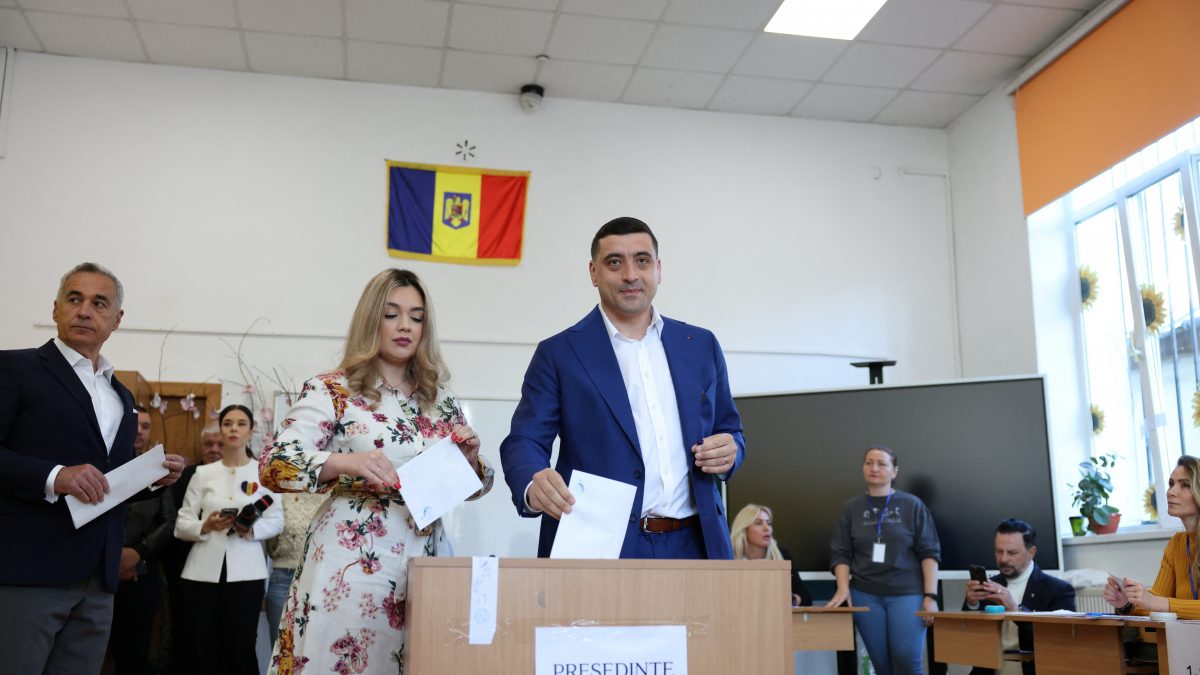A hard-right eurosceptic and a centrist independent are facing off in Romania’s presidential election runoff on Sunday; the result might have an impact on the nation’s faltering economy as well as the unity of the EU.
George Simion, a 38-year-old hard-right nationalist who criticises the leadership of the European Union and opposes military aid to neighbouring Ukraine, handily won the first round of presidential elections, leading to the fall of a pro-Western coalition government. That led to large outflows of cash.
Nicusor Dan, 55, a centrist mayor of Bucharest who is adamantly pro-EU and pro-NATO and has vowed to crack down on corruption, has stated that Romania’s support for Ukraine is essential for its own security against an increasingly dangerous Russian threat.
The president of the EU and NATO state has considerable powers, including being in charge of the defence council that decides on military aid. He will also have oversight of foreign policy, with the power to veto EU votes that require unanimity.
Whoever is elected will also need to nominate a prime minister to negotiate a majority in parliament to reduce Romania’s budget deficit - the largest in the EU - as well as to reassure investors and try to avoid a credit rating downgrade.
An opinion poll on Friday showed Dan slightly ahead of Simion for the first time since the first round in a tight race that will depend on turnout and the sizable Romanian diaspora.
Impact Shorts
More ShortsAbout 2.06 million Romanians, or 11.5% of registered voters, had cast ballots by 0634 GMT, data showed, including abroad. Voting ends at 9 p.m. (1800 GMT) with exit polls to follow immediately and preliminary results expected later in the evening. The president is limited to two five-year terms.
“Unlike Western states, which can more easily afford mistakes, trust in Romania can be lost much more easily and it could … take generations to gain it back,” said Radu Burnete, director of the country’s largest employers’ group.
“We cannot afford to drift.”
Isolation
Political analysts have said victory for Simion, a supporter of U.S. President Donald Trump, would risk isolating the country abroad, eroding private investment and destabilising NATO’s eastern flank.
Romania’s vote takes place nearly six months after the initial ballot was cancelled because of alleged Russian interference - denied by Moscow - in favour of far-right frontrunner Calin Georgescu, who was banned from standing again.
Simion owes much of his success to popular anger against the decision, as well as frustration with mainstream parties blamed for high living costs, inequality and corruption.
He has said he would chose Georgescu, who favours nationalisations and an openness towards Russia, to be prime minister.
Simion voted alongside Georgescu, who has called him his “protégé,” on the outskirts of Bucharest, flanked by bodyguards and swarmed by supporters.
“I voted against abuses and … poverty,” Simion said. “I voted against those who disregard us all.”
Dan voted in his small central Romanian hometown of Fagaras, hugging teachers from his old middle school and calling people out to vote as “Romania is choosing its future for longer than five years, it is at a turning point,” he said.
“I voted for change that brings prosperity not the discouragement of investment in Romania. I voted for a … good collaboration with our European partners and not isolation.”
Also on Sunday, Poles vote in the first round of Poland’s presidential election, which is expected to be led by pro-EU Warsaw mayor Rafal Trzaskowski and conservative historian Karol Nawrocki.
Victory for Simion and/or Nawrocki would expand a cohort of eurosceptic leaders that already includes prime ministers in Hungary and Slovakia amid a political shift in Central Europe that could widen rifts in the EU.
“What the (nationalists) want is a European Union that is as little integrated as possible,” said political analyst and historian Ion M. Ionita.
“One … in which decisions are only taken nationally, but still benefiting from European money.”
Some analysts said online disinformation had been rife ahead of Sunday’s vote.
“We’re seeing disinformation spreading like wildfire across social media platforms – through bots and strategic reshares mimicking authentic posting,” said Roxana Radu, expert at Oxford University’s Blavatnik School of Government.


)

)
)
)
)
)
)
)
)



